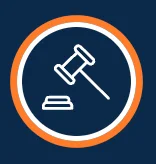Approximately one in 10 nursing home residents experiences some type of abuse, neglect, or mistreatment. Residents and family members need to recognize the signs of nursing home abuse.
Jordan Law Center explains.
What Constitutes Nursing Home Abuse and Mistreatment?
Nursing home abuse and mistreatment is not caring for a resident appropriately, which may involve violence or cruelty. Mistreatment may include neglect, inappropriate treatment, or failure to provide the appropriate experience and support for a nursing home resident.
Nursing home mistreatment can take many forms, including:
- Physical—hitting, kicking, pushing, restraints, chemical restraints
- Neglect—lack of food, water, medical attention, personal care, medication, social opportunities, mental health care; inadequate monitoring and poor response times
- Institutional—facility in disrepair, inadequate lighting, lack of facility amenities
- Emotional—insults, threats, belittling, intentionally making a resident fearful
- Sexual—nonconsensual sexual behavior, may involve staff, visitors, or other residents.
- Financial—improper use of resident funds or resources
The signs of nursing home abuse can be subtle. Multiple types of mistreatment can occur at the same time.
Physical Signs of Nursing Home Abuse
When nursing home abuse occurs, there may be physical signs. A person may have visible, physical injury. There may be no explanation, or the explanation may not make sense.
For example, a person may have a broken bone. They may explain that their walker broke, but you may notice that the walker appears intact. A person may have signs of punishment or restraint, such as marks on their arms or unexplained bruising. They may say they don’t know how they got the bruises.
Infection may be a physical sign of abuse in a nursing home. In addition, there may be an overall decline in health that is rapid or occurs without a medical explanation.
Not all physical signs are bodily injury. Missing medical records or activity logs, clothing and bedding that is soiled or removed, broken items, and other things that are out of place may also be physical signs of nursing home abuse and mistreatment. If the facility seems sparse without furniture, recreation rooms, or other comforts, it may be a sign that mistreatment is ongoing.
While physical signs of nursing home abuse may be apparent, it’s important to remember that abuse often occurs without outward physical signs. Abusers may take significant measures to cover up their behavior and avoid accountability. If something doesn’t seem right, you should investigate further.
Emotional and Psychological Signs of Mistreatment
Because physical signs of mistreatment are not always present, it’s equally important to look for emotional and psychological signs. A person may have a sudden, negative change in behavior.
They may become withdrawn. Changes may occur over a long period, with a person becoming hopeless or seeming depressed.
A person may show a lack of interest in activities they used to enjoy. You might ask them about a situation or circumstance, and they may hesitate to explain. They may show reluctance to be around certain employees or other residents.
These psychological and emotional changes may be a sign that abuse or maltreatment is occurring.
Signs of a Bad Nursing Home Environment
Signs of a bad nursing home environment include:
- Not seeing staff members around the facility, understaffing
- Not seeing residents around
- Signs of disrepair, wobbly railings, frayed carpet
- Staff not knowing the residents well, employee turnover
- Bed sores, infection, unexplained injury
- Heat, water, and electrical interruptions
- Bad online reviews, a history of investigations
- Foul odors
- Staff not knowing procedures and events
- Lack of privacy for residents
- Speaking badly of residents, medical privacy violations
- Restricted visiting hours
- Loud noises, phones, equipment
- Poor food quality
- Unkind staff to residents or visitors
Reporting Suspected Nursing Home Abuse
Multiple agencies receive reports of suspected nursing home abuse in South Carolina.
- 911:If someone is in immediate danger, call 911.
- 1 (888) 868-9095: SC Department on Aging, Long Term Care Ombudsman
- 1 (888) 227-3487: SC Department of Social Services, Adult Protective Services
- 1 (803) 545-4370: DHEC Health Facilities Licensing
- 1 (866) 200-6066: SLED, vulnerable adults division
- Local law enforcement: Your local law enforcement agency can investigate criminal nursing home abuse and vulnerable adult abuse.
You may also report online.
In most cases, the appropriate agencies to receive reports are the Long Term Care Ombudsman and Adult Protective Services. Each organization serves a different purpose. The Long Term Care Ombudsman can provide advocacy and resources while Adult Protective Services can investigate and take measures to protect a resident.
If a law may have been violated, law enforcement can investigate for criminal charges. A resident may have a valid civil legal claim even if law enforcement authorities decline to issue criminal charges.
How a Nursing Home Abuse Lawyer Can Help
No nursing home resident should experience abuse or maltreatment. A nursing home abuse lawyer can help. Your loved one may have the right to compensation. If death has occurred, loved ones may have a claim for wrongful death.
Seeking help from a nursing home abuse lawyer can hold the nursing home accountable. It may incentivize them to prevent the same harm from happening to others.
What if the mistreatment wasn’t intentional?
A claim for nursing home abuse may be based on intentional misconduct or neglect. It’s not necessary to prove that someone caused harm on purpose. Neglect, or a lack of reasonable care, may be sufficient to receive compensation for nursing home mistreatment.
Legal help for nursing home abuse
As lawyers for nursing home abuse and mistreatment, we can use our experience to help you evaluate the situation. We can guide you in reporting the abuse if you have not already reported it. In addition, we can explain the law and what’s involved in bringing a claim.
Talk to a Lawyer for Nursing Home Abuse
Have you recognized the signs of nursing home abuse? Get help and justice for your loved one.
At Jordan Law Center, we are experienced and accomplished trial lawyers.
For help with your situation or to talk about a loved one in a nursing home, we invite you to contact us.







“There is not enough GREAT THINGS I could say about Jordan Law Center.”